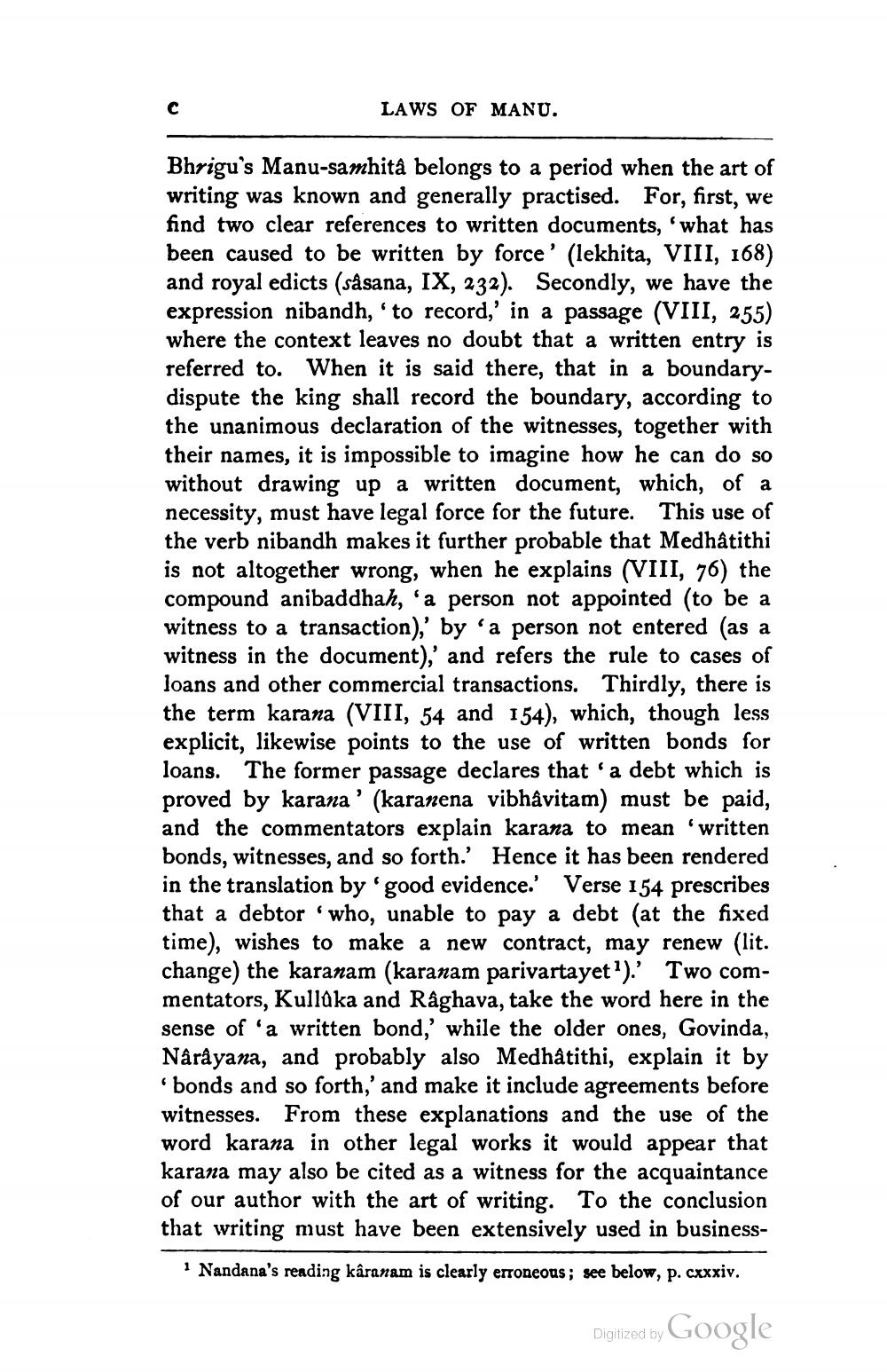________________
LAWS OF MANU.
Bhrigu's Manu-samhità belongs to a period when the art of writing was known and generally practised. For, first, we find two clear references to written documents, 'what has been caused to be written by force' (lekhita, VIII, 168) and royal edicts (såsana, IX, 232). Secondly, we have the expression nibandh, 'to record,' in a passage (VIII, 255) where the context leaves no doubt that a written entry is referred to. When it is said there, that in a boundarydispute the king shall record the boundary, according to the unanimous declaration of the witnesses, together with their names, it is impossible to imagine how he can do so without drawing up a written document, which, of a necessity, must have legal force for the future. This use of the verb nibandh makes it further probable that Medhâtithi is not altogether wrong, when he explains (VIII, 76) the compound anibaddhah, 'a person not appointed (to be a witness to a transaction),' by 'a person not entered (as a witness in the document),' and refers the rule to cases of loans and other commercial transactions. Thirdly, there is the term karana (VIII, 54 and 154), which, though less explicit, likewise points to the use of written bonds for loans. The former passage declares that a debt which is proved by karana' (karanena vibhâvitam) must be paid, and the commentators explain karana to mean 'written bonds, witnesses, and so forth. Hence it has been rendered in the translation by 'good evidence.' Verse 154 prescribes that a debtor who, unable to pay a debt (at the fixed time), wishes to make a new contract, may renew (lit. change) the karanam (karanam parivartayet?).' Two commentators, Kullaka and Raghava, take the word here in the sense of a written bond,' while the older ones, Govinda, Narayana, and probably also Medhâtithi, explain it by
bonds and so forth,' and make it include agreements before witnesses. From these explanations and the use of the word karana in other legal works it would appear that karana may also be cited as a witness for the acquaintance of our author with the art of writing. To the conclusion that writing must have been extensively used in business
· Nandana's reading karanam is clearly erroneous; see below, p. cxxxiv.
Digitized by Google




